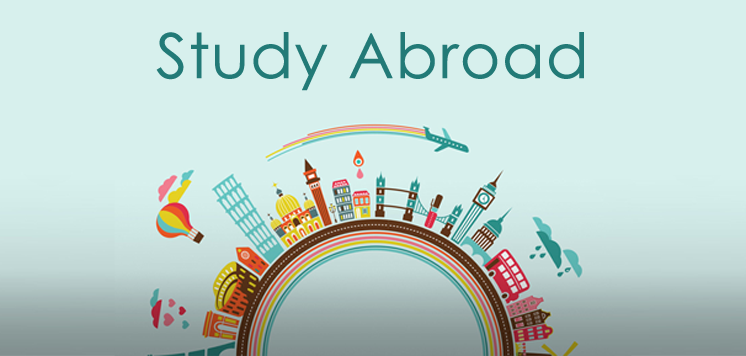With college on the horizon for many graduating seniors and soon-to-be seniors, it can be daunting to decide what to do after high school. There are a wide variety of paths to take after high school, such as pursuing postsecondary education, entering the workforce directly, and a plethora of other options to achieve a stable living.
I know that many students today are graduating and plan to attend college, and more specifically, choose to study abroad. Studying abroad, whether internationally or within your own country, can be an exhilarating and rewarding experience. However, like all things, studying abroad presents a variety of benefits and challenges.
Opportunity to partake in specialized courses:
One of the main appeals of studying abroad is that you will have the chance to find colleges that are more catered to your academic needs. Many choose to study overseas so that they can attend universities with prestigious programs in a field they wish to pursue. One of the most significant benefits of studying abroad is that you open yourself to far more opportunities besides just the ones that are available to you locally.
Studying abroad can be very expensive:
One of the most significant challenges associated with studying abroad is the increased expenses that often accompany it. Studying abroad is usually considered more expensive due to higher tuition fees for non-residents. Another increased cost associated with studying abroad is travel expenses, as the cost of getting there can be high, depending on your destination. Additionally, when studying far from home, you will often find yourself solely responsible for covering your housing, food, and other daily expenses, which can lead to increased financial stress. However, if you have the means to afford the increased costs of studying abroad, the financial burden that comes from studying abroad may not be as problematic.
Developing independence through studying away from home:
Many who have studied abroad have reported a feeling of liberating self-reliance and increased overall independence. The very aspect of being self-sufficient when studying abroad is considered by many to be one of its most significant benefits. By studying abroad and gaining the fundamental skills of self-sufficiency, many college students who study abroad achieve complete independence earlier than their local counterparts. Due to the increased self-reliance that comes with studying abroad, gaining early autonomy is a common occurrence. This increased independence is beneficial because it has been advantageous to many college students who want to achieve complete self-sufficiency as early as possible.
Studying abroad can lead to feeling homesick:
While it is true that studying abroad can make someone more independent, it is not uncommon for people so far away from home to feel homesick. Due to the taxing nature of studying abroad and adapting to a new environment, it can be challenging at times to establish oneself in an unfamiliar place. Many people often feel uncomfortable when they first arrive in a new place, and the adjustment to a new environment can be a significant problem for some. When people find themselves in an unfamiliar place, they are often more prone to feelings of stress and anxiety. However, the challenge of feeling homesick and uncomfortable in a new place can be mitigated by maintaining frequent communication with people you know from home. Communicating frequently with those you care about from your hometown has been proven to help when trying to adjust to a new place. So, while homesickness is a prevalent problem that arises with studying abroad, it is manageable with communication and support from those you know and care about.
When studying abroad, you can meet a wide variety of successful professionals in your field of study:
One of the greatest benefits of studying abroad is that you get to open yourself to a wide variety of people. Studying abroad often provides the opportunity to meet professionals in your field of study that you would not be able to meet if you had studied locally. Meeting professionals in the field you are studying can be a big help when it comes to learning more about what it’s like to work in a career. Professionals can also help you know how to set yourself up for success in the field you are studying. Additionally, by exposing yourself to professionals in other fields of study, you can broaden your horizons and deepen your understanding of different career paths. With this newfound information, you may be able to change your major early on.
Academic pressure of studying abroad:
Depending on which college you go to when studying abroad, it can be very challenging to adapt to a new curriculum or teaching method at an institution. It is known that colleges employ various teaching methods, which differ from one institution to another. However, these teaching methods can vary drastically by state, which can cause a learning curve when trying to adjust to a new curriculum out of state. It can be even more challenging to adapt to different teaching methods if you are studying internationally because you may experience completely different teaching methods that are very different from the ones that you may be used to. However, this academic pressure of adapting to new teaching methods when studying abroad can be remedied by researching how the institution you plan to study at teaches its curriculum. When looking at a curriculum for an institution you desire to go to, you may see a completely different teaching model or little to no change from what you are accustomed to. However, it is always good to have foresight into the academic structure of an institution you are planning to go to so that you are best prepared for the inevitable.
Verdict:
Many great opportunities come with studying abroad that are not available when studying locally, and vice versa. As with all things, studying abroad has positive aspects and challenges that will need to be overcome. However, with preparation, planning, and support, studying abroad can be a very rewarding and successful experience.






